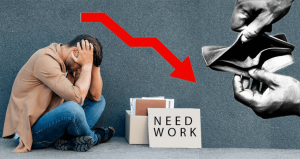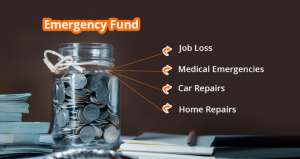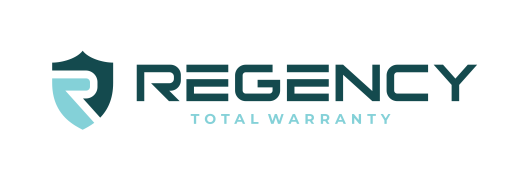How To Prepare For A Recession In 5 Different Ways
Published Date: August 19, 2022

It is generally believed that modern economies usually undergo a period of a slump after a period of strong economic growth, which some economists call a recession. Some experts believe that this cycle may repeat once in a decade. For this decade, it looks like the period of economic slowdown is upon us, for which we need to take adequate measures to protect our financial interests.
Experts typically consider two consecutive quarters of negative gross domestic product (GDP) as an indicator of an impending recession. The United States experienced this in 2022 as the economy sank by 1.6% in the first quarter and 0.9% in the second quarter. As these circumstances are hinting at an impending economic collapse, you should consider taking precautionary measures and prepare to navigate through this period of recession.
What Happens In A Recession & How To Prepare For It?

Recessions not only affect the economy of the country, but it has a cascading effect on every individual as well. The economic slowdown generally affects the financial sector, which affects the banking sector.
The decreasing demand will also pave the way for job losses. If you are an investor, the slowdown usually has a harsh effect due to the drop in demand and sudden shift towards savings due to volatile market behavior.
Here are some of the major issues that might arise during times of recession:
- During a recession, there are higher chances of employees being laid off. This phenomenon can be observed throughout the Great Recession and the brief pandemic-era recession. The food service, retail, leisure, and hospitality industries are typically the hardest hit during a recession, being forced to lay off employees or, in the worst case, being shut down altogether.
- A recession doesn’t affect everyone the same way. It is significantly harder for someone already in a precarious position, like working low-paying jobs prohibiting them from saving enough money to fall back on in rough times. More often than not, some run into debt because of it.
- Due to the difficulty of finding a new job during a recession, many people find themselves unemployed for extended periods. During this time, they begin to deplete their savings and find it more difficult to pay their bills.
- People who have robust savings could also experience some losses. Investors who have money in bonds, stocks, real estate, or other assets risk losing it.
- Homeowners paying their mortgages may fall behind on their payments or find it hard to finance any unexpected repairs. Those who have never purchased a home may have to wait longer to be able to purchase one.
The effects of a recession can be worrisome. However, it is possible to prepare for and survive one. Here is how –
Assess Your Financial Priorities

Being unsure about what will happen next or when things will improve is one of the most difficult aspects of a recession. Therefore, it’s critical to assess and prioritize your financial situation. Consider these questions when coming up with a financial plan –
- What amount of money can you access immediately should you need it?
- How much debt (school loans, credit cards, etc.) do you currently have?
- What are your basic monthly living costs, including childcare, transportation, housing, and health insurance?
- Do you have any significant life events (such as marriages, having a baby, or retiring) that may incur high costs?
- How much money do you currently have, and how much can you spare to save?
Now, it’s time to analyze your current spending and plan for your needs for the following six months. If you have an emergency fund that can cover 3-6 months of living expenses, you are kind of well-prepared for a recession, losing your job, or facing a financial crisis. Set that as your financial objective if you don’t have enough cash to cover your basic costs for at least 3 to 6 months. Create a budget and start by getting a basic grasp of how you spend your money.
Calculate your household’s total income streams, including that of you, your spouse or partner, and any side businesses that contribute to the family’s finances before you begin creating a budget. Include investment income as well as any other sources of income, such as child support. It would be wise to factor in different plausible scenarios like inflation or the onset of a depression down the line so as to be prepared for even the worst scenarios.
Then, make a list of your regular monthly expenses, including your rent or mortgage, utilities, groceries, prescription, and medical costs, childcare expenses, home, and auto maintenance, debt payments, insurance premiums, and any other recurring costs. Add even those that you only incur once a year. Add up everything to determine if you’re spending more, less, or about the same as your monthly take-home pay.
If you or your spouse/partner are faced with job loss, prioritize your essential costs and determine the absolute minimum you can spend in a single month to get by.
It’s okay if your budget needs to change before a recession. Spend less on entertainment, cable, and apparel if at all possible. Even if it’s impractical to expect you can eliminate all discretionary expenditure, it’s crucial to distinguish between needs and wants. Find any areas where you might have gone over budget. Try to determine what caused that. It’s okay in the near run if you don’t have any extra cash on hand right now to contribute to your retirement or a down payment.
Start An Emergency Fund

Even if job losses or layoffs are imminent, put as much money as possible into your emergency fund. When your income stops, you’ll need every last piece of it. Give up everything extra, even delivery and takeout.
Losing your work or living on a lower wage qualifies as a solid reason to utilize part of the money you’ve saved, though it’s never a choice you should make lightly. However, when your financial condition improves, it’s critical to replenish your emergency money. If not, you might be forced to make difficult choices like applying for a home equity line of credit or taking out money from your retirement account when the next emergency arises, which is never a good idea.
If you have a lot of cash and it is in a high-interest, FDIC-insured account, it will maintain its total value during market turbulence. Additionally, it will also be very liquid, allowing you to access it quickly if you lose your job or have to accept a pay cut.
Keep Up With Your Contributions
Whether you have a 401k already set up or not, make an effort to stick to your allocated contributions. Even if investing during a recession seems unsettling, doing so will be your long-term advantage.
Consider taking out a home warranty or a similar arrangement earlier to avoid unnecessary expenses when something breaks down, and you don’t have money to spare. Remember to enlist the help of only reputed and leading home warranty companies in the market so as not to fall prey to scams.
Think Of Your Career Path

High unemployment rates are a common side effect of recessions. As a result, it’s crucial to think about how difficult economic times can affect your job and have a backup plan in case you get laid off.
Refresh your professional network’s relationships first. Think about your connections both inside and outside of your current employer, as well as your coworkers. Having connections at numerous firms might give you a significant advantage in the employment market. You can even consider contacting your network on social media or proposing to meet for coffee in person.
Update your CV and other job-hunting materials in advance if possible. Look for any gaps when you analyze your prior employment experience. Will extra training or further education help? The best method to invest in your professional development as an employee is to increase your skill set. This is still true even if you manage to hold onto your job during a recession.
It might be advantageous for certain employees concerned about being laid off to start a side business like freelancing or working for a ridesharing service. Popular side gigs include starting a food catering business, digital marketing, dropshipping, etc. In addition to helping in the event of a layoff, having a second source of income might make it simpler to save emergency funds while you are still employed.
Diversify And Invest For The Long Term

Your paper losses should be reduced if you don’t have all of your money in one place, making it easier for you to weather market downturns. You’ve got a head start if you already own a house and have savings. You have some cash and some money invested in real estate.
Build a portfolio of investment pairings that aren’t significantly correlated, or where one goes up, the other goes down, and vice versa. Real estate or REITs are not highly correlated to the US stock market and tend to do reasonably well despite economic restructuring. Another key consideration is to be wary of investing in asset classes of industries or companies that have a history of huge debts on their balance sheet.
A market decline causing a 10 or 15% decline in your investments may ignite panic. But try to hold yourself back from selling. Because of the market’s cyclical nature, you’ll have many chances to sell high in the long run. If you invest during a market decline, you might subsequently regret it.
Having said that, as you get closer to retirement age, you should make enough money in liquid, low-risk investments to fund your retirement promptly and give your stock portfolio time to recover. Remember that only a percentage of your retirement savings is necessary when you are nearing 60. When you are 56, the market may be in a bearish phase, but by the time you are 62 or so, it may be bullish.
You could consider investing in funds comprising the US Treasury bonds, municipal bond funds, or taxable corporate funds, all of which are relatively the safest bets compared to the other options in the market during a recession. Let’s take a look at some of the options that you can consider:
- Treasury Bonds have a 20 or 30-year maturity and pay interest every six months.
- Treasury Notes are issuances of government securities that bear maturities of 2, 3, 5, 7, and 10 years and pay interest at a rate of 6% per annum.
- Series I Savings Bonds are a low-risk savings option that can help you earn interest for up to 30 years. You can even sell these bonds at no concessions.
- Invesco Corporate Bond Fund, compared to other funds in the same category, the risk is above average, while fees are below average.
- Floating Rate Notes (FRNs) are issued with a two-year duration and offer quarterly interest payments. Depending on the discount rates on 13-week Treasury notes, interest payments on an FRN increase and decrease.
The Bottom Line
No matter how the economy is doing, adopting these sound financial practices will help you have a better budget. The best method to raise your savings and be ready for unforeseen events is to keep track of your spending, make regular adjustments, accumulate an emergency fund, and look for ways to enhance your current situation.




